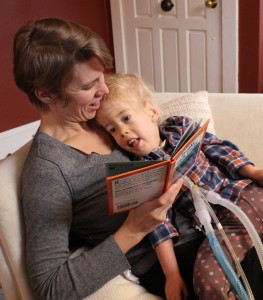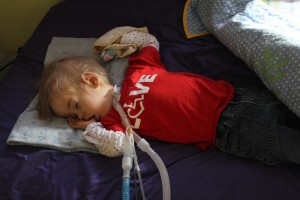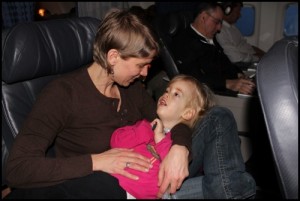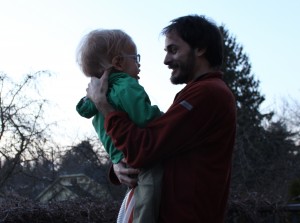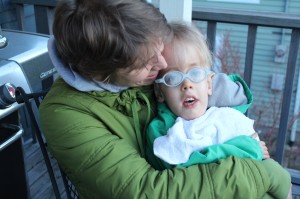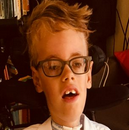Mr. Hanson goes to Olympia (March 29)
Yesterday we had the privilege of joining about 100 other people from across the state for a Washington Care Council grassroots lobby day in Olympia. The lobby day was part of the Caring Across Generations campaign which brings together people who need home care — mostly elderly people and people with disabilities — and people who do caregiving work. It is in all of our interest to see more funding for in-home care and an increase in the value placed on such work.
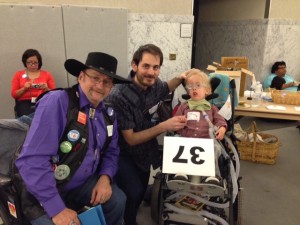 The lobby day was extremely well-organized and successful (props to our friend Susie – we know that it’s NOT easy to pull something like that off!) We spent the first part getting to know the issues and hearing each other’s stories. And the stories were all so powerful. Care providers who worked for years providing health care services, as well as all the love and passion involved in caregiving, only to find that when they needed health care they didn’t have insurance or means to pay for it. There were many people — almost all women — who do this work informally as housekeepers, but then also get called on to do more health-related personal assistance. One woman told the story of how she works three jobs to take care of her children, including paying full college tuition (not in-state) at the UW because her family is undocumented. A man with disabilities named Charlie (see picture with Lucas) and one of his care providers came together from Spokane. They both spoke passionately about the dignity that comes from being able to receive care — help dressing, bathing and moving around — that allows Charlie to stay in his home. His care provider talked about how much she loved her work, but also how many people she sees come and go because the starting pay for a personal assistant is around $10 an hour.
The lobby day was extremely well-organized and successful (props to our friend Susie – we know that it’s NOT easy to pull something like that off!) We spent the first part getting to know the issues and hearing each other’s stories. And the stories were all so powerful. Care providers who worked for years providing health care services, as well as all the love and passion involved in caregiving, only to find that when they needed health care they didn’t have insurance or means to pay for it. There were many people — almost all women — who do this work informally as housekeepers, but then also get called on to do more health-related personal assistance. One woman told the story of how she works three jobs to take care of her children, including paying full college tuition (not in-state) at the UW because her family is undocumented. A man with disabilities named Charlie (see picture with Lucas) and one of his care providers came together from Spokane. They both spoke passionately about the dignity that comes from being able to receive care — help dressing, bathing and moving around — that allows Charlie to stay in his home. His care provider talked about how much she loved her work, but also how many people she sees come and go because the starting pay for a personal assistant is around $10 an hour.
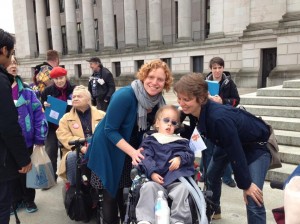 We shared Lucas’s story, and he got lots of loving attention. We talked about how critical home care has been for our family. When we met with our legislators (Lucas’s least favorite part of the day), we focused on the importance of Medicaid expansion so that more people can have the quality of life that comes with receiving home care. We talked a little about the Community First Option, which prioritizes people staying in their homes over moving into nursing homes. And we advocated for immigration reform generally, and specifically the passage of the Washington State Dream Act (which would allow all Washington residents, regardless of immigration status, to pay in-state tuition).
We shared Lucas’s story, and he got lots of loving attention. We talked about how critical home care has been for our family. When we met with our legislators (Lucas’s least favorite part of the day), we focused on the importance of Medicaid expansion so that more people can have the quality of life that comes with receiving home care. We talked a little about the Community First Option, which prioritizes people staying in their homes over moving into nursing homes. And we advocated for immigration reform generally, and specifically the passage of the Washington State Dream Act (which would allow all Washington residents, regardless of immigration status, to pay in-state tuition).
It was a big day for us — bringing together some of the organizing work Burke is doing professionally, our experience with doing this kind of grassroots lobbying in the past, and our very personal and emotional connection to the issue of health care reform.
The one downside of the day is that the Senator and Reps from our district (37) are already quite supportive of these issues, so it didn’t feel like we had a huge political impact. But while we were standing in the hall, a legislator caught site of Lucas and came over to ask us about why we were in Olympia. He seemed genuinely taken by Lucas, and surprised to hear about what is required financially to care for him in our home. We got his card (he’s a Republican from eastern Washington) and plan on following up with him to emphasize that voting to expand Medicaid means voting to take Federal money that will help provide jobs and additional health insurance for hundreds of thousands of people. It seems too obvious to even need to discuss, but it turns out some Republicans (including the majority in Montana where Burke was just spent four days for work) reject it because it’s part of “Obamacare.” The Montana state legislature will likely refuse to expand health coverage to low-income people, a tragedy given the great need that exists. So in the end, we hope that in addition to making connections with wonderful activists yesterday we also helped gently nudge a skeptical legislator toward supporting expanded health care.
